7 Wonders is a card drafting, civilization-building game.
Title: 7 Wonders
Year Published: 2010
Designer: Antoine Bauza
Publisher: Asmodee
Players: 2-8
Game Time: 30+ Mins
Set-up Time: >10 Mins
Ages: 10+
Theme: The Ancient World
Mechanic: Card Drafting
How to win: Score the most points
Game Description
You are the leader of one of the 7 great cities of the Ancient World. Gather resources, develop commercial routes and affirm your military supremacy. Build your city and erect an architectural wonder which will transcend future times.
How to play 7 Wonders, Leaders, Cities & Armada
A quick and concise video on how to play 7 Wonders with the expansions.
7 Wonders Set Up
Each player is given a Wonder board at random and 3 Coins.
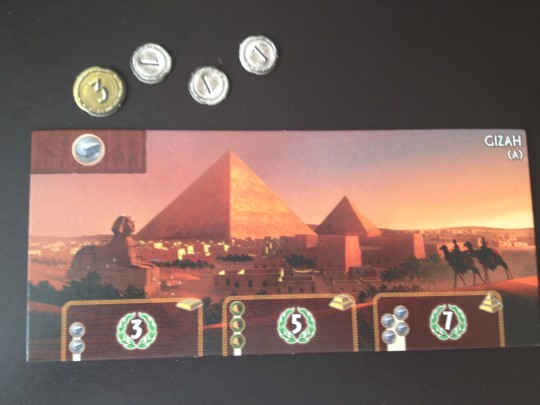
As they are playing with the Leaders expansion, they start with 6 coins instead of 3.
The 3 Age decks are created by using a number of cards from that Age depending on the number of players.
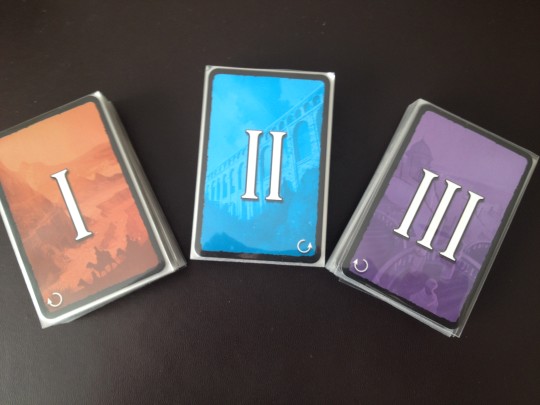
A number of Guild cards are added to the 3rd Age depending on the number of players.
If playing with the Cities expansion, a number of cards are added to each Age depending on the number of players.
If you have the Leaders Expansion, each player gets 4 random Leaders and 3 extra Coins. Leaders are drafted to the right which will give each player a hand of 4 Leaders to use in the game.
7 Wonders Game Play
The game is played over the 3 Ages, with each Age having 3 phases each.
1 – Recruitment Phase
Each player will play a Leader by paying the cost in Coins. They may also use the Leader to build a stage of their Wonder. (explained later) They can also be discarded to gain 3 Coins just like any other card.

She costs 4 Coins and is worth 5 points at the end of the game.
2 – Play the Age
Each player will be dealt a hand of cards from the 1st Age where all the cards will be dealt out. Everyone will choose a card and place it face down. When everyone has picked, everyone will simultaneously make one of the following options:
A – Build a Structure
To do this, reveal the card and pay the cost shown on the card. If you create resources you can use these resources to build these buildings.
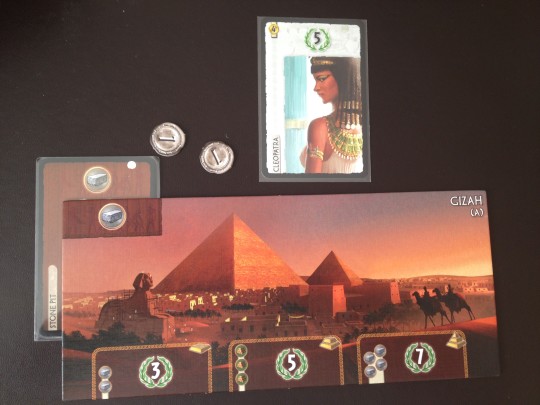
The Stone Pit is free to build.
B – Build a Stage of the Wonder
Pay the cost shown on the level of the Wonder you are building and slide the card underneath, face down, to show that level is complete.
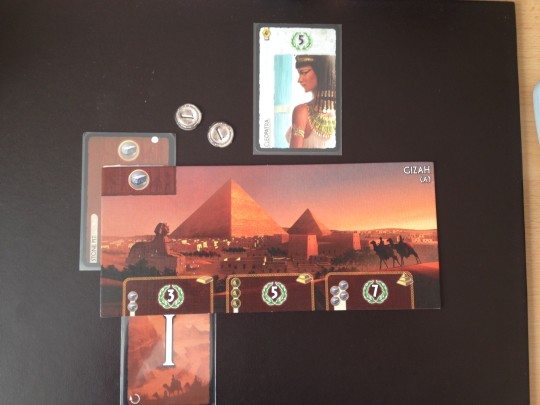
To build requires 2 Stone, which the player has.
C – Discard a Card
Discard the card face down and gain 3 Coins.
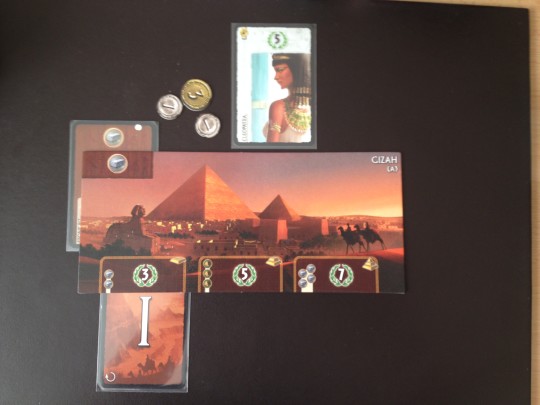
3 – Go to the next hand
In the 1st Age, you will pass the cards to the left and repeat step 2 with the cards passed to you. You repeat this until you only have 2 cards left, then you play one and discard the other.
In the 2nd Age you pass right, 3rd left again.
4 – Conflict Resolution
At the end of each Age, players resolve Military conflicts with their 2 neighbours.
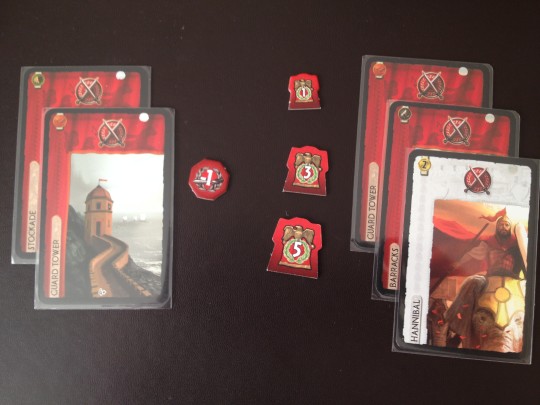
The player on the right has 3 from their Guard Tower, Barracks and their Leader, Hannibal.
The left player will lose 1 point and the right player will gain 1,3 or 5 points depending on the current Age.
In the 1st Age, you gain 1 point if you have more Military Strength than your neighbour and -1 if you lose. In the 2nd Age, you gain 3 points and in the 3rd Age 5 points but you still only ever lose 1.
Neither player gains nor loses points in a tie.
Next Age
At the end of the Age, you move on to the next Age. After Age 3, end-game scoring occurs.
7 Wonders Game End
Players total their points.
1- Military Conflicts
The total of the Military Conflict points including the pluses and minuses. These are worth 18 points maximum at the end of the game, down to a possible -6.
2 – Treasury
Players gain 1 point per 3 Coins they have left. If a player is asked to pay money to and can’t, they have a -1 point token for each coin they could not pay back. These points are counted here too.
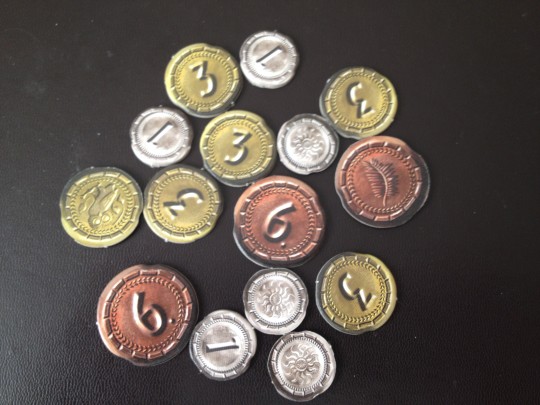
3 – Wonder
Players gain any points they may have for completed stages of their Wonder.
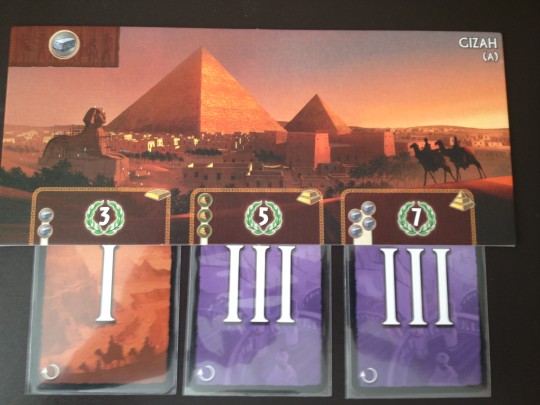
4 – Civilian Structures
Points are gained for the printed values on Civilian cards.
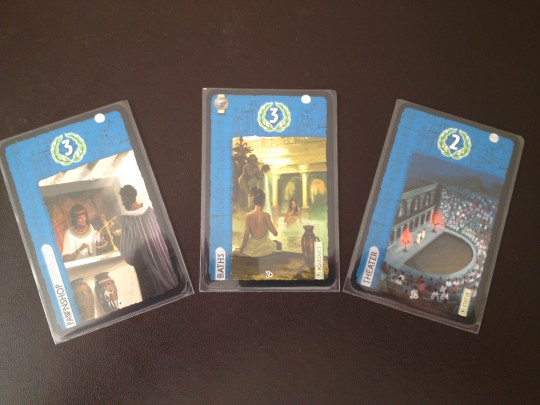
5 – Scientific Structures
Scientific Structures give you 3 symbols and points are awarded for sets of identical symbols and sets of 3 symbols.
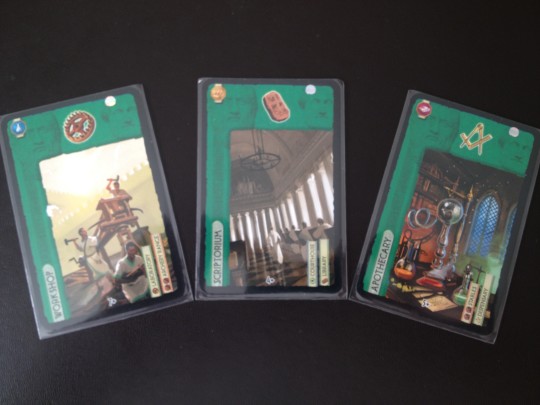
For each symbol, gain points equal to the square of the number of each symbol you have. (Example, 3 of one symbol is 3×3 = 9 points)
Each set of 3 different symbols is worth 7 points.
6 – Commercial Structures
Some Commercial Structures give Victory points just as Civilian Structures do.
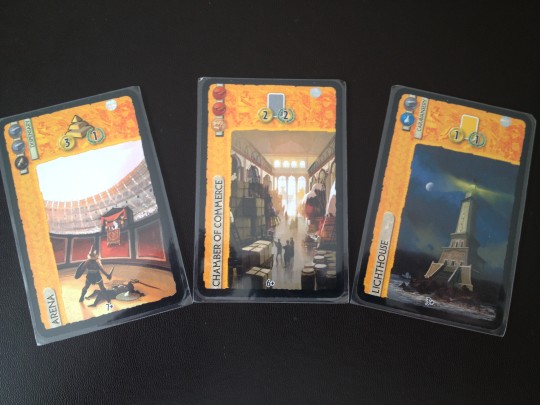
7 – Guilds
Each player gains points according to any Guild cards played.
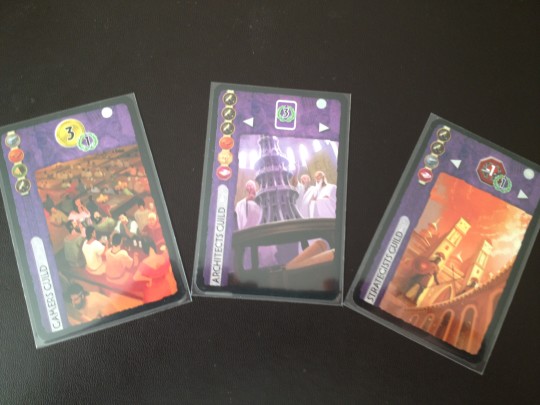
8 – Leader/City
If you are playing with the Leader and/or City expansion, you add any points those cards have given you.
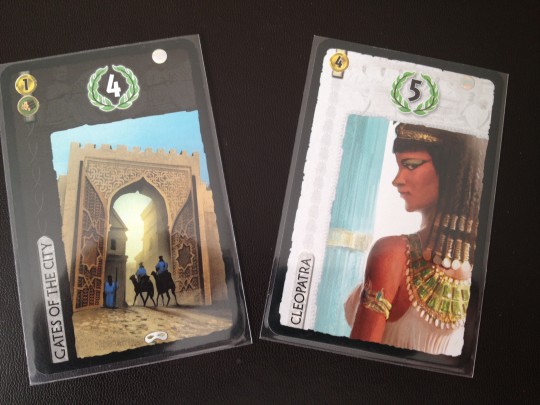
The most points win. In the case of a tie, the player with the most coins wins.
7 Wonders Round-Up
There are many paths to victory in 7 Wonders. A lot of how the game plays can depend on which Wonder you have to start with and which Leaders you are able to draft.
There are a lot of cards in this game but you won’t get to use all of them so you need more than one strategy every game you play.
With the game pick a card, play the card, and pass the cards the game plays quickly. If everyone has played before it can play very VERY fast.
Symbols
There are a lot of symbols which are for the most part pretty intuitive but some have you reaching for the cheat sheet. This can be a nightmare for a new player when they feel the pressure to hurry up from 6 experienced players.
I’m far from qualified to give tips on how to play this game but believe me when I say it’s a very simple game to learn yet it remains very complex.
Player Interaction
Player interaction is good but limited. Your Military battles only affect the players on each side of you. You can buy resources from other players, but again only from your neighbours.
But this is ancient times and your neighbours will be your main trading partners as well as your biggest threat so I guess it follows the theme.
Rating
I love 7 Wonders, I’m always up for playing it even if after many games I have never won at the time of writing.
I give this 8/10
This game is a member of my Board Game Hall of Fame!
Jesta ThaRogue

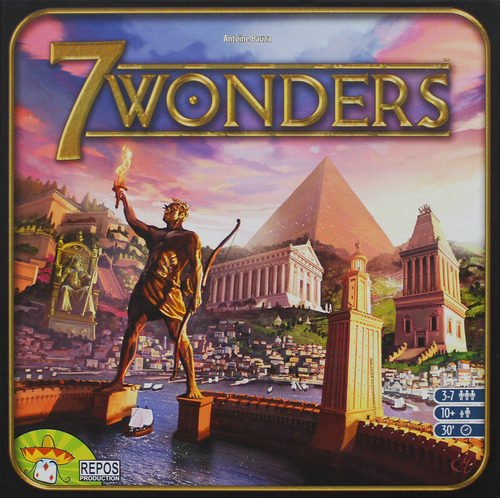
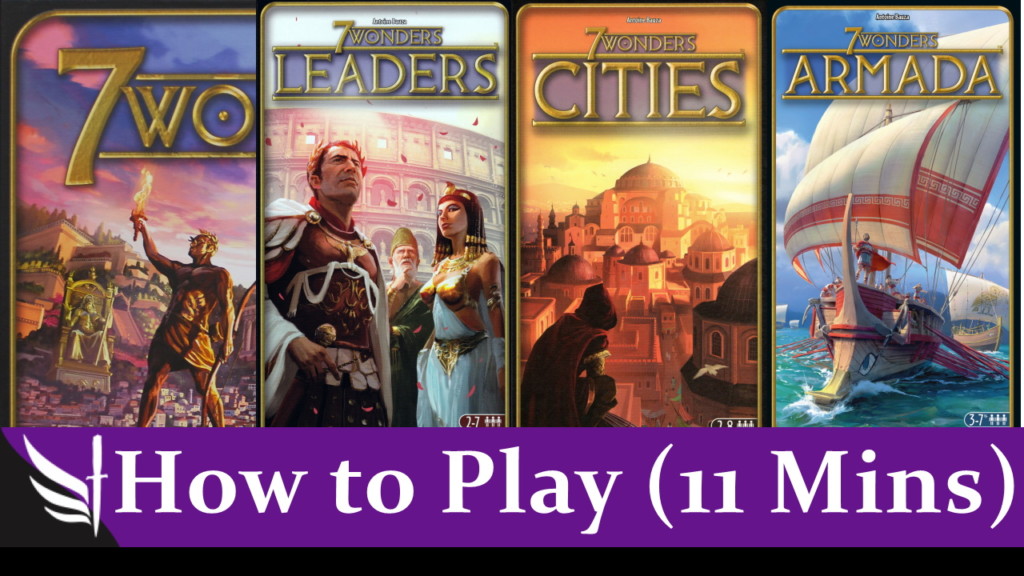
Leave a Reply